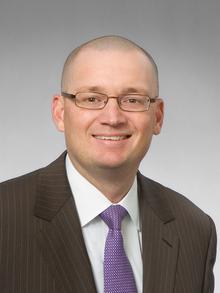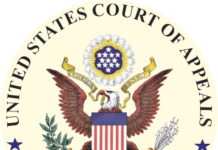The U.S. Senate on Tuesday night confirmed Kansas Solicitor General Toby Crouse to a seat on the federal bench in Kansas.
The Senate voted 50-43 to confirm Crouse, who has been the state’s top appellate lawyer since 2018 when Attorney General Derek Schmidt named him solicitor general.
“We need good, solid judges that interpret the Constitution in ways that enforce the law and provide justice and equity,” said U.S. Sen. Jerry Moran.
“Toby Crouse is highly qualified, both professionally and personally, to fill this seat,” Moran said.
He was the state’s top litigator in the landmark Kansas school finance case, and he successfully argued two cases for the state before the U.S. Supreme Court last fall.
Crouse also was involved in the appeal of a federal court decision blocking the state’s proof-of-citizenship law for registering voters.

The state lost that case, which former Secretary of State Kris Kobach tried on his own in district court. The case is now on appeal to the U.S. Supreme Court.
Crouse, who was rated as well qualified by the American Bar Association, becomes the third federal judge appointed to the federal bench in Kansas by President Donald Trump.
Trump also nominated U.S. District Judge Holly Teeter to the bench in 2017.
And he also nominated U.S. District Judge John Broomes to a judgeship in 2017.
The other sitting federal judges in Kansas were either nominated by President George W. Bush (Judges Julie Robinson and Eric Melgren) or President Barack Obama (Judge Daniel Crabtree).
“Toby Crouse has done an outstanding job serving Kansas for almost three years as our solicitor general,” Schmidt said in a statememt.
“I am confident his perspective on the appropriate role and authority of federal courts is firmly grounded in the text and original meaning of the U.S. Constitution and statutory law as Congress has written it,” he said.
Crouse’s nomination ran into opposition from national liberal groups who criticized his work on the Kobach case as well as defending former Gov. Sam Brownback’s decision to cut Planned Parenthood off from Medicaid funding.
Democratic U.S. Sen. Dianne Feinstein registered one of the more strenuous objections to Crouse’s nomination, calling it “troubling.”
Feinstein directly asked Crouse during his confirmation hearing about whether there was evidence of widespread voter fraud to justify Kobach’s citizenship law.
“I was called as the advocate on behalf of the state to defend that law in federal court, and I have done so,” Crouse said told the senator.
“The law was passed by the Legislature. It was their policy choice to do so, and the evidence that I had on the appeal was that which was identified in district court.”
Crouse became solicitor general years after the citizenship law was enacted, but he took the case on appeal after Kobach personally tried the case and lost in district court.
But Crouse’s critics went much deeper with their criticism, citing many friend-of-the-court briefs that Kansas joined with other states in filing with the U.S. Supreme Court.
The cases covered a range of issues, including gun rights, LGBTQ rights and immigration.
The state has authored or joined about 70 amicus briefs filed with the Supreme Court since Crouse has been solicitor general, although his name was not on many of them.
Crouse’s critics cited one amicus brief from 17 states, including Kansas, that asked the U.S. Supreme Court to review a lower court ruling that found a florist discriminated against a same-sex couple by refusing to provide floral services.
The brief in the florist case, which does not include Crouse’s name, was authored by Texas Attorney General Ken Paxton. The court has not yet reached a decision in that constitutional dispute.
Critics also cited another brief that Kansas joined defending President Donald Trump’s efforts place to a citizenship question on the U.S. census.
The census brief, which also does not include Crouse’s name, was authored by the attorneys general in Arkansas and Oklahoma. The Supreme Court blocked the Trump administration from using the question.
Crouse has been practicing law in Kansas for 20 years, starting in 2000 as a law clerk for a federal judge in Wichita.
He worked at Shook, Hardy & Bacon from 2003 to 2007 before joining the Foulston Siefkin law firm in 2008 and stayed until 2018, according to his questionnaire for the Senate Judiciary Committee.
He is a graduate of Kansas State University in 1997 and earned his law degree from the University of Kansas in 2000.
















